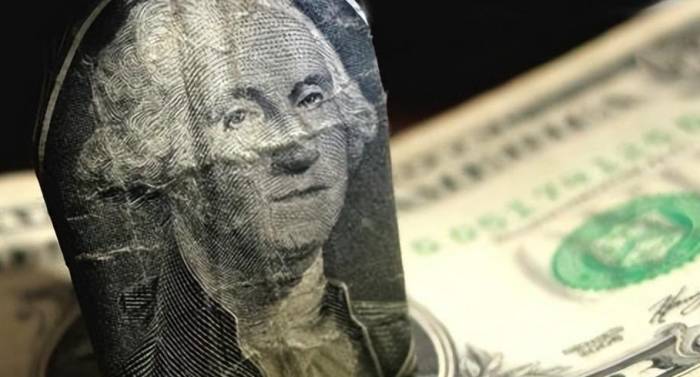As soon as the news of the interest rate cut hit the market, Wall Street was instantly abuzz. Everyone was talking, speculating whether this meant that the U.S. economy was about to face significant issues. I heard that the Federal Reserve cut rates by 50 basis points this time, even more aggressive than expected. This is truly rare, leaving everyone feeling uncertain.
However, upon closer examination, there are reasons for the Federal Reserve's actions. Recently, the U.S. economy has indeed been sluggish. Inflationary pressures have remained stubbornly high, and ordinary people's wallets just aren't getting any fatter. Coupled with the global economic situation being less than optimistic, the U.S., as the "big brother," is also having a tough time.
The U.S. Treasury market is on edge, with countries abandoning ship in droves.
Speaking of which, the U.S. interest rate cut this time really surprised many people. After all, U.S. Treasury bonds are the "anchor" of the global financial market. Who would have thought that even this "anchor" is now starting to wobble.
The most recent 20-year Treasury auction was nothing short of dismal. Demand was far below expectations, and the allocation ratio for primary dealers soared to 18.6%, reaching a new high since February this year. What does this indicate? It indicates that interest in U.S. debt is waning.
Even more astonishing is that even the U.S.'s "stalwart allies" have begun to massively sell off U.S. debt. Japan has sold off U.S. debt for four consecutive months, totaling $72.1 billion. France went all in, selling off $16.3 billion at once, and the UK was not to be outdone, selling off $13.2 billion. Even China joined the selling spree, albeit on a smaller scale, with only $3.7 billion, but that's enough to draw market attention.
Some analysts joked, "It's like the scene before the Titanic sank, with everyone rushing to get out." Although this analogy is a bit exaggerated, it's not without merit. After all, the direction of the U.S. debt market is a matter of global financial stability.
The Chinese yuan's exchange rate has rebounded strongly, and the dollar's dominance is being shaken?

On the same day the Federal Reserve announced the rate cut, the Chinese yuan's exchange rate welcomed a strong rebound. Since July, the yuan has appreciated by about 1,700 points against the dollar. On September 19th, both onshore and offshore yuan hit a new high since July 2023.
Some people, seeing this news, can't help but ask, "Is the dollar's 'hegemony' about to be shaken?" Indeed, looking at the data, the dollar's position seems to be facing a challenge. Over the past 11 years, China has cumulatively sold off U.S. debt to the tune of $543.5 billion, approximately 41%. That's no small number!However, some experts caution against excessive optimism. They argue that the global dominance of the US dollar is built on a long-term accumulation and is difficult to shake in the short term. Nevertheless, the recent interest rate cut by the Federal Reserve has indeed put significant pressure on the dollar.
The high level of US debt and the worrying economic outlook
Ultimately, the Fed's rate cut reflects the immense challenges facing the US economy. As of September 19, 2024, the total federal debt of the United States has reached a staggering $35.4 trillion, with the debt-to-GDP ratio hitting 123%. This number is enough to make one's hair stand on end.
An economist jests, "The United States is now like a debt-ridden second-generation rich kid; although the family fortune is still there, it is already spending more than it earns." Although this comment is somewhat harsh, it also reveals the awkward situation of the US economy.
What is even more worrying is that the US government seems to have not found an effective solution yet. Continue printing money? That would only make inflation worse. Austerity measures? There is a fear that economic growth will be affected. It's really a dilemma!
The global economic landscape is changing, who will become the new "leader"?
The uncertainty of the US economy also means that the global economic landscape is facing a reshuffling. Some say this may be the beginning of a "multipolar" world. But who can become the new economic "leader"?
Some people turn their attention to China. Indeed, the development of China's economy in recent years is evident. However, China also faces its own challenges, such as an aging population and the transformation of industrial structure.
Others are optimistic about the European Union. But there are also significant internal divisions within the EU, and there is a long way to go to truly become the "leader" of the global economy.
Emerging economies such as India and Brazil are also expected to play a significant role. Their economic size and influence are currently not comparable to major countries like the United States and China.The future is filled with uncertainty. How should we respond?
Facing such a complex situation, what should we ordinary people do? To be honest, I don't have any profound insights. However, I believe there are at least a few points worth our attention:
We should remain vigilant, but not overly panicked. The economic situation is indeed not very optimistic, but it's not the end of the world.
We should learn to diversify our investments. As the saying goes, "Don't put all your eggs in one basket," a principle that applies equally in financial investments.
We should improve our professional skills and competitiveness. No matter how the economic situation changes, those with abilities will always find opportunities.
The Federal Reserve's interest rate cut this time is like a stone thrown into a calm lake, causing ripples. It not only affects the U.S. economy but also tugs at the nerves of the global financial market. What we can do is to stay clear-headed and be prepared for any potential changes at any time. After all, in this rapidly changing world, the only constant might just be change itself.